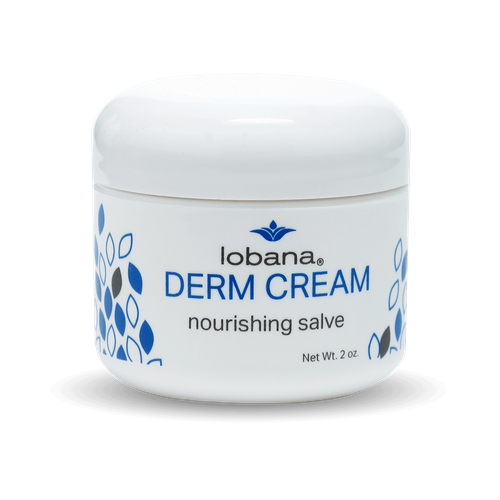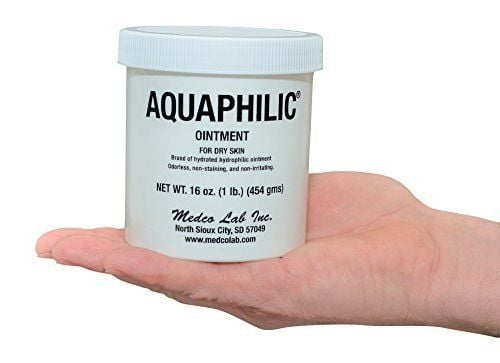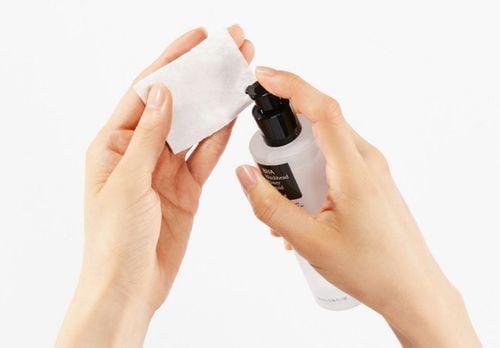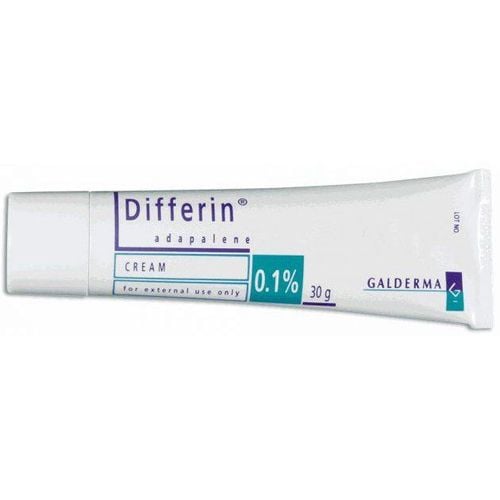This is an automatically translated article.
Facial oil blotting paper is a product that is no longer strange to modern women. Facial oil blotting paper not only plays a role in taking care of oily skin, but also acts as an agent to help keep makeup for a longer time.
1. What is oil blotting paper?
All skin produces oil. The sebaceous glands play a major role, secreting a thin layer of oil on the surface of the skin that moisturizes and protects your skin. Oily skin is defined when the sebaceous glands are overactive, resulting in a greasy surface, clogged pores, and breakouts.
Oily skin or oily skin is a difficult skin type to take care of, requiring careful selection and use of skin care products. Oily skin can be caused by a variety of factors such as stress, medications, overuse of certain skin care products, or even sunburn. Heredity is another irreversible cause of oily skin.
Excess oil on the skin when combined with dirt will clog pores and create acne. Facial oil blotting paper was born with the purpose of absorbing excess oil on the skin. This is a way to both clean the skin and keep the makeup on the skin. Some facial oil-absorbing paper products only work to remove oil from the skin simply, others also add a thin layer of powder deposited on the skin to clean the oil.
Use blotting paper throughout the day to remove excess oil from the skin and prevent shine. A small tip when using blotting paper for facial skin is to gently press the oily area to clean it, then gently lift the paper off your face and absolutely do not rub the paper on your skin.
2. Does facial oil blotting paper dry the skin?
Besides the benefits of blotting papers, they are also considered as one of the other surprising causes of oily skin. Using any unnecessary skin care tools can lead to excess oil production in the skin.
Today, with the demand for beauty, skin care tools are used very richly, including many things such as oil blotting papers, acne squeeze tools, face washcloths, face washes, face wash pads, brooms polish, pore patch, etc. While many so-called 'oil control' products are suitable when it comes to oily skin, sometimes they don't really work.
So is oil blotting paper bad for your skin? The answer is yes. Facial oil blotting papers, along with the other skin care tools mentioned above, can take away essential oils from the skin. The skin will then be boosted to increase oil production to compensate for the lost oil.

Lạm dụng giấy thấm dầu có thể khiến tình trạng da của bạn trở nên tồi tệ hơn
Even though you think you're doing the best for your skin by using these tools, you're actually making them worse. Oil blotting paper is one of the most commonly used tools for removing excess oil from the skin. However, when overused or used too often, blotting paper for facial skin will not promote this effect and cause many harms.
The truth is that your skin needs some oil, so when you overuse an absorbent towel or other tool, your skin will go into protection mode. Every day, skin is attacked by oil, makeup, smog and pollution. Pressing an absorbent paper into the skin to absorb the oil will remove a bit of shine at an expensive cost. While some of the oil is absorbed into the paper, you are pushing the rest including dirt, grime, makeup, and excess oil back into the pores. That creates an oxygen-free environment inside your pores where the P. acnes bacteria thrives creating breakouts, blackheads, bumps, and overall skin congestion. Therefore, you will not be able to overcome the original oily skin condition but also have new acne spots.
Many brands claim to have the best blotting papers for oily skin, but they really don't address the cause of oily skin. The most important thing to do when caring for oily skin is to identify the cause and try to eliminate it. This will reduce oil production, making your oily skin products work more effectively.
3. Some tips when taking care of oily skin
Possessing a completely normal oily skin. Here are a few things to keep in mind when caring for oily skin for healthy skin:
3.1 Wash your face regularly When caring for oily skin, the basic rule to remember is to wash off excess oil. You should wash your face in the morning, at night and after exercise. Be careful to avoid using harsh cleansers, which can irritate the skin and trigger increased oil production. Instead, use a gentle foaming cleanser. For the same reason, you should not scrub your face too harshly. Cleansers should choose a gel or bar texture that is more likely to work for oily skin than a cream or oil cleanser.
3.2 Exfoliate Exfoliate Exfoliate Every few days. Doing so will help your skin get rid of dead skin cells, which can trap sebum. When sebum attaches to dead skin cells, acne can form.
3.3 Moisturizing Oily skin also needs moisturizer, especially if using products designed to remove oil from the skin. Choose a cream that is light and non-comedogenic so as not to clog pores. In the morning, you can skip the moisturizer and apply sunscreen instead.
3.4 Use blotting paper for facial skin as needed Use blotting paper to remove excess oil buildup and control skin shine. You can find this product at most convenience stores. Gently pat the paper over your face and do not rub it, as this can spread the oil.
3.5 Remove makeup before going to bed First, remember to look for non-comedogenic, non-pore-clogging cosmetics and remember to remove makeup before going to bed. Use an effective product that doesn't require you to rub and irritate your face. Recently, micellar water makeup removers have proven effective in removing water-based cosmetics. Some makeup removers can also help remove the oily film left behind by oil-based makeup removers.

Tẩy trang là bước vô cùng quan trọng trong quy trình chăm sóc da dầu mỗi ngày
3.6 Take care to avoid some ingredients You can find skin care products at a variety of prices. Pay attention to product and ingredient labels instead of relying on brand recognition. The following ingredients will clog oily skin:
Cocoa Butter Coconut Oil Petroleum Jelly Silicone Products that contain alcohol should also be avoided as they tend to irritate the skin.
3.7 Choose the right products Spend some time searching for products that contain proven oil-control ingredients. The following ingredients have been successful in reducing oil in clinical trials:
Green tea Niacinamide, a form of vitamin B3 L-carnitine, an amino acid Licochalcone A, a phenol extracted from licorice root, can Useful to fight acne and control oily skin. Additionally, clay masks have been shown to help control excess oil. When using the product, follow the instructions on the label. If you're trying something new, use it on a small area of skin when starting out to make sure it doesn't irritate the skin and even make the condition worse.
Try not to touch your face throughout the day. Doing so can spread bacteria, dirt, and more oil to acne-prone areas.
While oily skin is unlikely to lead to serious health complications, it can make you embarrassed or lower your self-confidence. If oily skin is a concern, you should consult your GP or see a dermatologist, especially if the above remedies don't give you the results you want.
If you have any questions that need to be consulted, you can contact Vinmec International General Hospital website to be supported by expert doctors.
Please dial HOTLINE for more information or register for an appointment HERE. Download MyVinmec app to make appointments faster and to manage your bookings easily.
Reference source: bioelements.com












